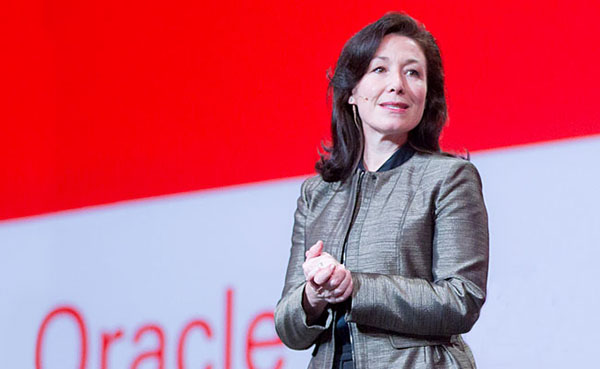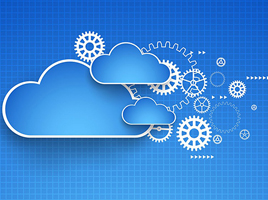Oracle’s transition to being a major enterprise cloud vendor took another step forward yesterday as co-CEO Safra Catz addressed widely held perceptions that the company was late to embrace cloud computing.
Catz who is widely considered to be founder Larry Ellison’s right-hand woman following her 18-year stint as an executive at the company said in London yesterday that Oracle has been preparing for a shift to the cloud for several years now.

“We at Oracle have always been blessed by having a founder, CTO and chairman who is always looking way into the future,” she said. “Many of you know Larry directed the entire development organisation to build what we called SaaS-ready, business online and platform as a service before the word cloud even existed.
“Over a decade ago, after we started our acquisition spree, our goal was to rewrite our entire product line. We telegraphed and took an important decision even then to what the future was going to be like now, because we had a focus on what technology should really be helping enterprises do.”
The enterprise software giant appears to be trying its hand at revisionist history here. Ellison and his company has been mocked in the past for being late to the cloud, dating back to an infamous video where the ex-CEO said that the cloud is just “water vapour”.
Head of technology and cloud for UK, Ireland and Israel at Oracle John Abel told Computerworld UK after Catz’ keynote that he always asks customers what they think of Oracle when they first meet and that they tend to say: “Database company, late to cloud.”
Abel’s job is then to explain that it is, in his words, “a database company, who put in $5 billion worth of R&D spend and ten years of cloud development”.
“That is the problem we have: we just don’t tell the customers enough,” he said.
Abel added that the sales culture at Oracle is “changing aggressively” to meet demands from customers.
“It is much more moving to consultative selling than typical product selling. A lot of the cultural shift I am doing at Oracle is going from a product culture to a solution culture.”
Catz’ also spoke during her keynote about a changing “engagement model” at the company when speaking to customers about the cloud.
Oracle is a company which is renowned for its tough negotiation style when it comes to contracts. Catz appeared to engage with this perception directly, saying: “In the cloud, customers don’t want a six-month contract negotiation with us, six months sounds ridiculous. In the days where a five-year implementation was the rule of putting in a new system, six months maybe sounded reasonable. Now when you can go from beginning to end in a month, or four months, the very concept is absurd.”
Now Oracle has overhauled its “entire back office”, Catz said, to allow it to better sell cloud to customers. “We called it accelerated buying experience. What this meant was many customers make the choice to go with us and ultimately the provisioning and billing is done in a completely streamlined, automated fashion.”
This had the added benefits of opening up a market of smaller customers for Oracle, according to Catz, “and offering products and services at a much more competitive price,” she said.
Catz also spoke about the importance of talent, without broaching the tricky subject of access to talent in the current climate of Brexit in the UK, and the recent immigration ban by the Trump administration in her native US (Catz sits on Donald Trump’s transition team).
She spoke about how cloud allows organisations to give employees better information quicker than before. “Most colleagues will want better information and the thing the cloud brings is much faster insight,” she said. “You cannot waste colleague or employee time, their insight needs to be applied to the best possible information.”
Oracle claims to be the fastest growing cloud company in the world but is playing catch up to the clear market leader in infrastructure-as-a-service (IaaS) AWS.
In Q2 back in December Oracle announced it’s nascent combined software-as-a-service (SaaS) and platform-as-a-service (PaaS) cloud business revenue continued to grow, up 81 percent for the quarter to $878 million. The IaaS product brought in just $175 million for the quarter though, which is up six percent. AWS for Q3 in October, by comparison, brought in net sales of $3.2 billion.




